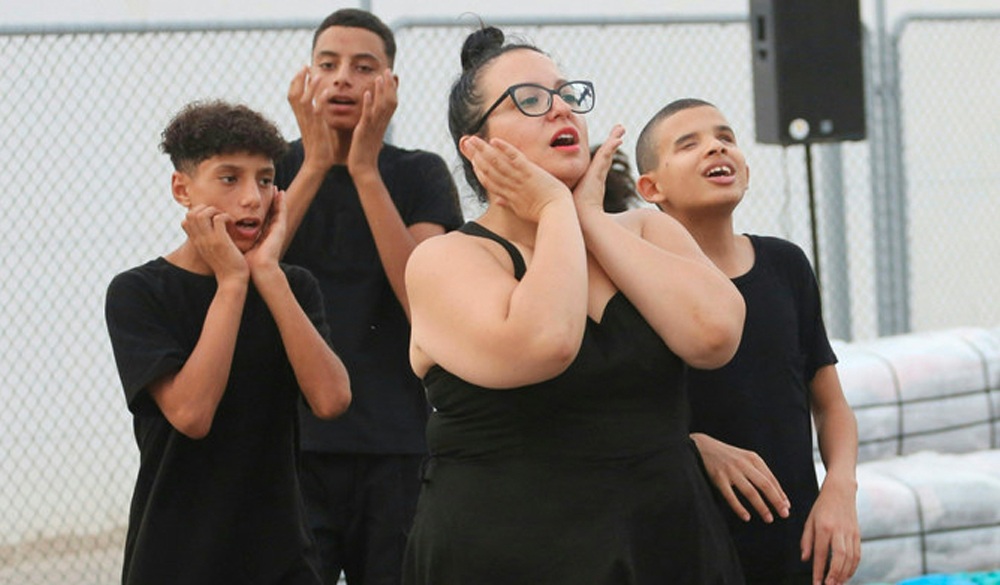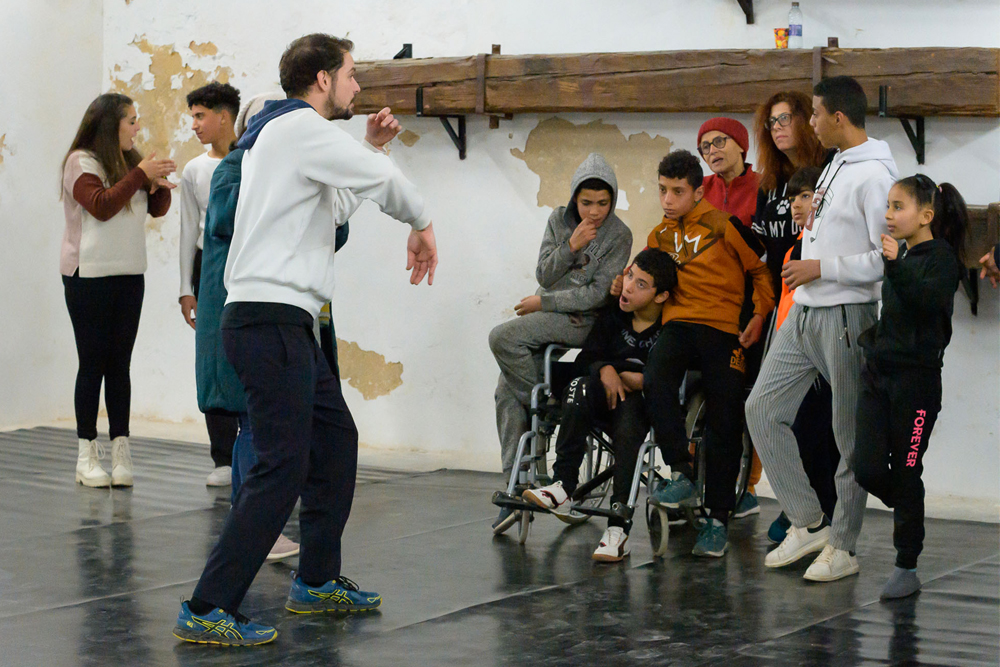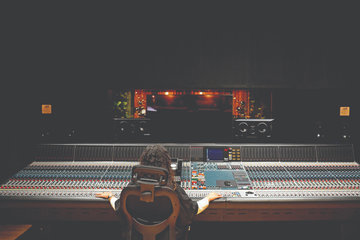
In a groundbreaking Tunisian dance performance, three remarkable artists challenge artistic and inclusive norms. The ensemble features a wheelchair user, a visually impaired artist, and a dancer with Down syndrome. Choreographer Andrew Graham emphasizes that their disabilities are not the show's focus. "Lines" celebrates diversity and inclusion, featuring migrants. Premiering at the Dream City Festival in Tunis and running until October 8, the performance unites 15 dancers from diverse North African backgrounds.

This innovative production aims to break down barriers and stereotypes, promoting unity and cooperation. Cedric Mbourou, a Gabonese dancer who faced anti-immigrant sentiment, views "Lines" as a chance for performers to support and collaborate with each other.
Amidst racial violence against sub-Saharan African migrants, Graham's vision for the show is clear: It's about people dancing for an uninterrupted hour, where the focus shifts from their identities to their dance. Graham's ambition for "Lines" extends far beyond Tunisian borders; he hopes that this remarkable show can travel globally, captivating audiences across Europe, the Middle East, and Africa.

Graham's inspiration for "Lines" emerged during workshops he directed in Tunis in 2021, and from the rich tapestry of his Sicilian-Tunisian heritage and the diverse cultural blend that is Tunisia itself.
The performance blends electronic music with rhythmic "hadra" chants from Sufi tradition. Rayen, aged 16, captivates the spectators as he leaves his wheelchair behind and performs an enthralling dance routine.

Onstage, visually impaired 13-year-old Iyed is lifted into the air by fellow performers. His mother, Hakima Bessoud, a former tourism worker, enthusiastically supports her son's passion, experiencing a transformative change since rehearsals commenced. Bessoud, who hails from a conservative background, warmly embraces the diversity within the show, including openly gay dancer and actor Ahmed Tayaa. According to her, acceptance is paramount, even for her son, Iyed, who she recognizes as different.

Tayaa, on the other hand, is awestruck by his sister Nourhene, who has Down syndrome, as she takes the stage. He describes "Lines" as a place where everyone's unique qualities shine, emphasizing that we all have our own forms of disability, often hidden within.

For professional dancer Sondos Belhassen, the experience of working on "Lines" has been transformative, requiring a reevaluation of preconceived notions about what a dancer should be. She believes that this performance has left an indelible mark on all involved, leaving them with precious memories and a profound sense of what the human body is capable of achieving when unburdened by stereotypes and expectations.

















